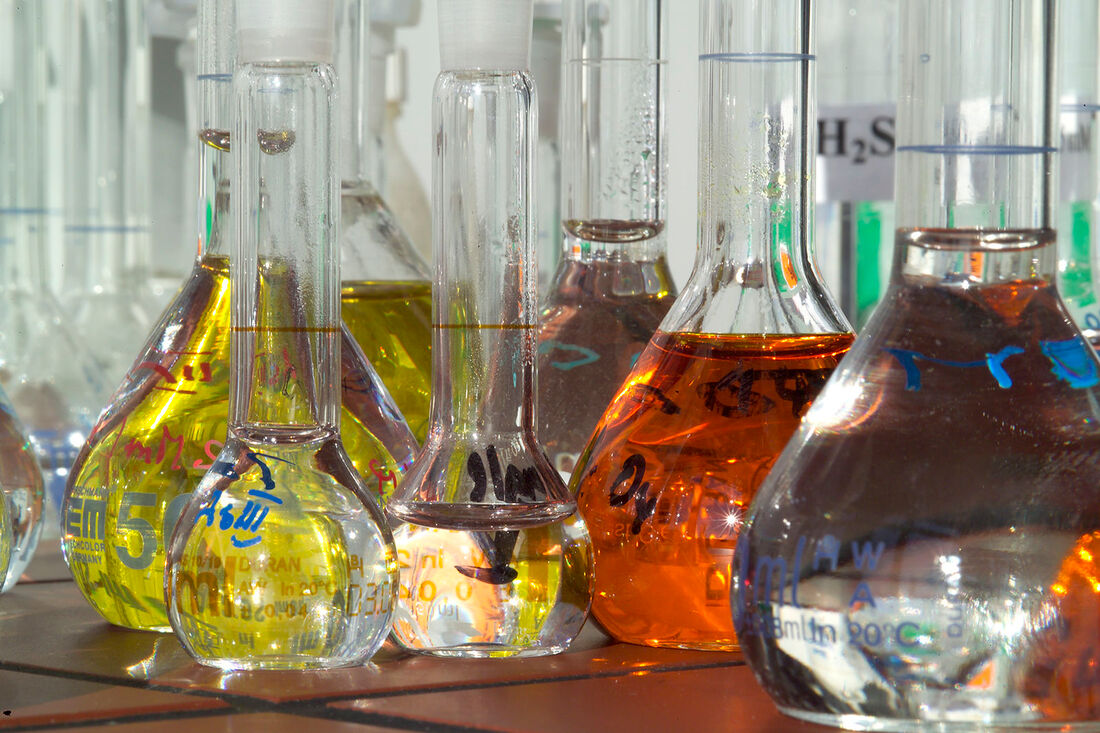|
By Boyuan Chen In the popular perception of the century, the word “chemical” equates danger, cheapness, and human ignorance. While organic foods, all-natural products, non-GMO crops, and detox diets have become new trends for a healthy lifestyle, greenhouse gases, DDT, thalidomide, GMO, itai-itai disease, pesticides, and fertilizers are all instances of artificial disasters too vivid to forget. One of the most commonly used counterarguments by scientists and chemists to accusations of the danger of chemicals is that nothing is truly “chemical-free.” A chemical, by definition, is anything that results from a chemical process. By this definition, we live in a world of chemicals since almost everything in our lives—the air we breathe, the water we drink, the foods we eat, and the clothes we wear– are all products of various chemical processes. As far as scientists know, the only substances that are truly free from “chemicals” include but are not limited to: black holes, neutron stars, dark matter, and all those subatomic particles that fancy physicists talk about. This argument, albeit true, fails to connect with the public. The term “chemicals,” as perceived by the public, specifically refers to products of artificial chemical processes. When this conception, however inconsistent with the scientific interpretation, is accepted by the general public, the scientific community should no longer fixate on the inclusiveness of the term. To address the fear towards “chemicals,” it is more important to examine the fear specifically directed towards chemicals synthesized by modern industry. To be fair, the fear that permeates synthetic chemicals is not unwarranted. As previously mentioned, there are far too many cases of “harmful chemicals” that have devastated not only Mother Nature but human health as well. However, it is still important to note how the chemical industry has a far deeper affect on our lives than the media renders, which will be illustrated in the next paragraph. The public negligence of the whole picture, therefore, is the result of a psychological effect called “availability heuristic.” Observed by psychologists Daniel Kahneman and Amos Tvorsky, this heuristic refers to the phenomenon that occurs when people estimate the likelihood of an event based on the most available information. In the case of chemicals, the dramatic events linked to chemicals overshadow their otherwise mundane presence, and make people overestimate the portion of chemical products that are harmful, while oblivious to the chemicals’ broader applications. Let’s say you decided to ride a bike to work instead of driving a car. It’s easy to think that your ride will be free from synthetic chemicals, right? But the thing is, even though riding a bike produces far less harmful chemicals than driving a car, the bike would not come to be without synthetic chemicals. The metal skeleton is composed of light and durable aluminum, made possible only by a process called Hall Heroult Process, where aluminum is smelted by electrical current from ores in molten cryolite. The rubber, natural or not, must be cured by sulphur through a chemically-controlled process known as vulcanization. In fact, industries often use certain chemicals, in this case the ingredients required to build a bike, to reduce the harm of more hazardous ones such as the greenhouse gases emitted by cars. The same principles apply to everyday objects other than just bicycles. Chemicals are neither purely our apocalypse nor our savior, but can be, and often are, both. While DDT eliminates malaria, dengue fever, and yellow fever effectively, it bioaccumulates in birds, and even potentially, humans. Fertilizers and pesticides salinate the ground and kill off biodiversity, but feed billions worldwide. At the same time, chemists are finding new chemicals that can stop or even undo the damage caused by other harmful chemicals—catalysts that can convert water to hydrogen, plastics that are biodegradable, devices that can capture carbon dioxide and reverse global warming, and so on. To help the public develop a more objective understanding of chemicals, scientists and educators should find ways to introduce their importance, especially in regards to their potential applications in the future, to dispel the historic fear that enshrouds them. Instead of focusing their attacks on products that are “100 percent all natural” and correcting the definition of “chemicals,” they should focus their efforts on arguments to which the public is more likely to be receptive.
0 Comments
Leave a Reply. |
Categories
All
Archives
April 2024
|

